As 1.6 Billion Muslims Celebrate Eid—One Muslim Community Faces Horrid Obstacles
The state sanctioned persecution of Pakistan's Ahmadiyya Muslim Community presents a critical blockade to justice and humanity
Eid Mubarak!
Let’s start with a quick thought exercise. Imagine if tomorrow the United States government passed a constitutional amendment declaring all Catholics as not Christian. Then imagine if the government added criminal provisions that any Catholic identifying or acting Christian would be fined, arrested, and given up to the death penalty. Additionally imagine that when a Catholic went to register to vote, they would be forced to choose between accepting that they were “non-Christian” or else sign a declaration denouncing the Pope and Catholicism. And finally, imagine if all books, websites, universities, even apps addressing Catholicism were banned, and Catholics using these tools to speak out about their persecution would face arrest or even death.
Hold that thought.
In a riveting speech days before Pakistan was officially born in 1947, Pakistan’s Founding Father Muhammad Ali Jinnah addressed Pakistan’s constituent assembly describing his vision for what the new nation would be. He declared:
You are free; you are free to go to your temples, you are free to go to your mosques or to any other place of worship in this State of Pakistan. You may belong to any religion or caste or creed that has nothing to do with the business of the State.
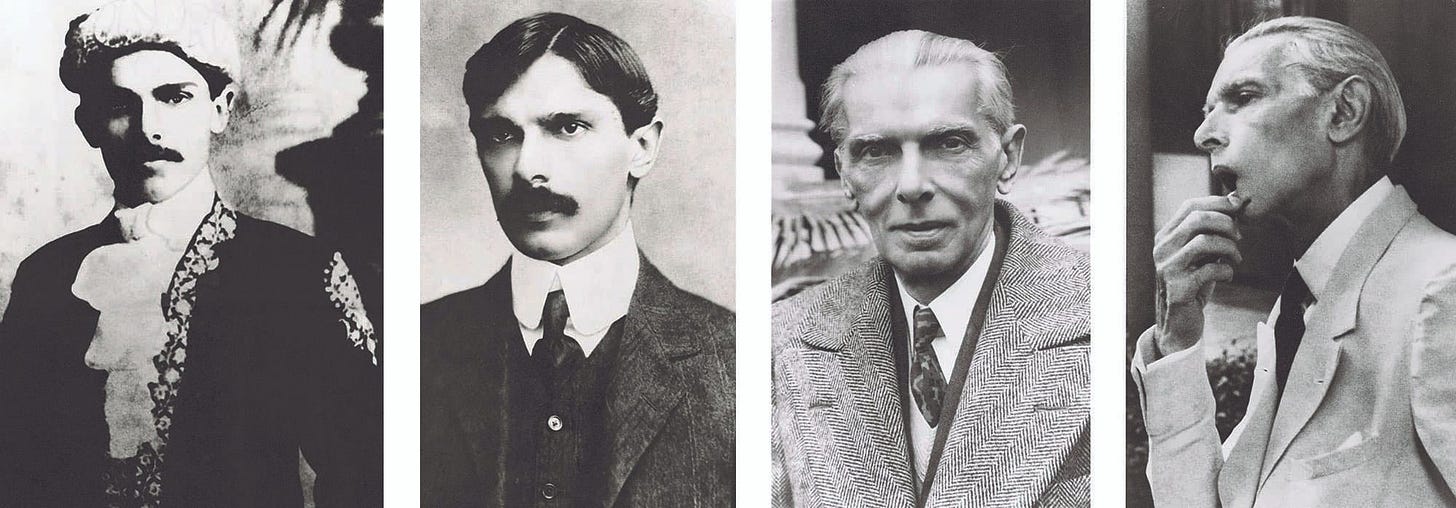
But by 1974, a crack emerged in this foundation, and it has expanded ever since. And right now as some 1.6 billion Muslims celebrate our holiest day of the year, Eid ul Adha, commonly known as the Eid of Sacrifice, that chasm is ever painfully growing. To quickly share the significance of this Eid, I summarize from an article I wrote for TIME Magazine nearly a decade ago:
The Eid of Sacrifice is Islam’s holiest holiday because it marks the end of the Hajj pilgrimage. It commemorates Prophet Abraham’s willingness to sacrifice his son Ismael. God intervened and instead, he sacrificed a ram. On a deeper level, this Eid of Sacrifice asks Muslims to sacrifice our egos for the sake of service to God and service to humanity. The literal shift from sacrificing a person to sacrificing a ram set a precedent of the sanctity of all human life. This event established the principle that any act that takes innocent human life…is, in fact, repulsive to divine order.
But this article isn’t about religious rites and rituals. It is about a principle that applies to all humanity—universal freedom of conscience—and the systemic denial of that freedom to members of the Ahmadiyya Muslim Community in nations like Pakistan.
For Ahmadi Muslims in Pakistan, even celebrating the holiest day of the year is an act of defiance and potential death sentence. The thought exercise I started this article with regarding Catholics is not a hypothetical for Pakistan’s Ahmadi Muslims, but the ground reality. It’s as if Pakistani clerics already enacted Pakistan’s version of Project 2025, except they did it way back in 1974, and now we’ve seen what a half century of that oppression has produced. It isn’t pretty, or sustainable.
Last week extremists shot and killed two Ahmadi Muslims in broad daylight. Additionally, extremist lawyers are demanding Ahmadi Muslim lawyers denounce their own faith to practice law or join the BAR in Pakistan. As an Ahmadi Muslim lawyer myself, this is particularly painful.
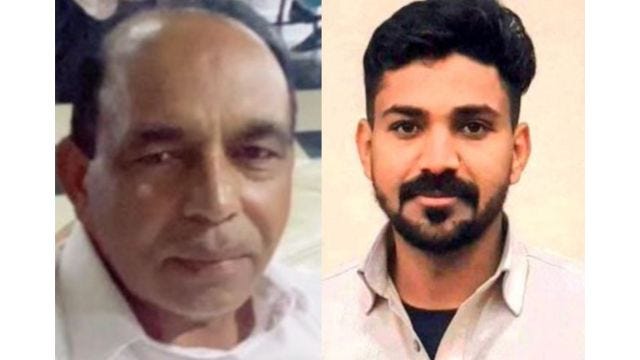
In the past, I’ve written and published extensive peer reviewed law review articles on the systemic persecution of Ahmadi Muslims in Pakistan, but I write this to provide an easier to digest contemporary update to that ongoing persecution and violence—and why it absolutely impacts us here in the United States and globally outside of Pakistan.
As I wrote for Just Security back in 2021:
The alliance between the two nations has sent $70 billion in economic and military aid to Pakistan since Pakistan’s founding. If not for the sake of sheer justice, then at least for the sake of protecting American interests, President Joe Biden must hold U.S. ally Pakistan accountable to repeal its discriminatory anti-Ahmadi legislation and actions. While the legislation particularly targets Ahmadi Muslims, it tragically also enables societal discrimination and violence against Pakistan’s Christian, Sikh, Hindu, and Shia communities.

And while Pakistan was founded as a secular nation that championed separation of religion and state, pseudo-intellectual clerics gained enough influence over the halls of power to enforce draconian and oppressive legislation targeting the minority Ahmadiyya Muslim Community. Today, Ahmadi Muslims exist in what can only be described as apartheid conditions. As the U.S. Commission on International Religious Freedom reports:
Ahmadis in Pakistan are subjected to severe legal restrictions and other forms of officially-sanctioned discrimination. Ahmadis are prevented by law from engaging in the full practice of their faith and may face criminal charges for a range of religious practices, including the use of religious terminology. In 1974, the constitution was amended to declare members of the Ahmadi religious community to be “non-Muslims.” In 1984, basic acts of Ahmadi worship and interaction were made criminal offenses when sections B and C of Article 298 were added to the penal code. These amendments criminalized Ahmadis “posing” as Muslims, calling their places of worship “mosques,” worshipping in non-Ahmadi mosques or public prayer rooms, performing the Muslim call to prayer, using the traditional Islamic greeting in public, or displaying the basic affirmations of the Muslim faith.
And as just one example of the absurdity of this persecution, consider the case of an elderly Ahmadi Muslim lawyer:
In April 2023, a 77-year-old lawyer from the Ahmadiyya Community was targeted within the premises of the Sindh High Court by some lawyers on account of his faith. He was accused of hurting the sentiments of Muslims by adding the religiously inclined word 'Syed' as a prefix to his name. However, critics argued that by using the prefix, which is only used by Muslims, the lawyer was trying to pose as a Muslim, and they did not accept that being of the Ahmadiyya faith, he was a Muslim.
You read that right. The blasphemy allegation was that his name, Syed, hurt the feelings of orthodox Muslims and therefore he is a criminal. The most prominent and violent attack on Ahmadi Muslims to date occurred on May 28, 2010, when Taliban extremists attacked two Ahmadi mosques in broad daylight, during Friday Jummah Prayer, and killed 94 Ahmadis.
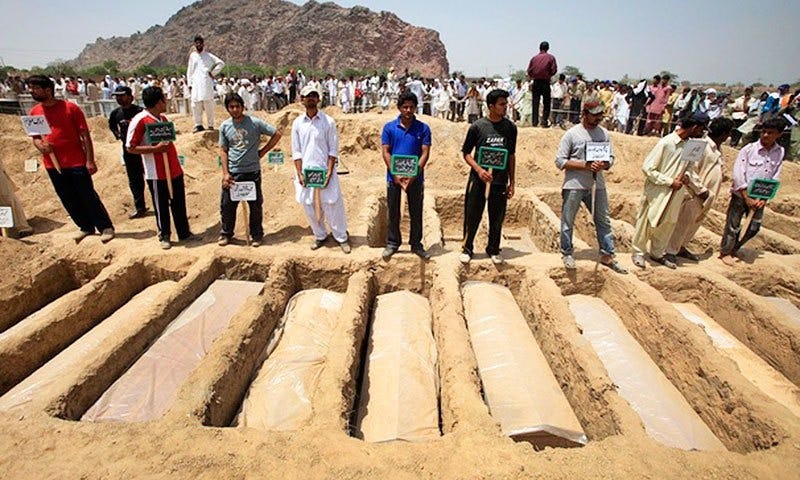
Dozens to hundreds of Ahmadi Muslims are murdered annually with impunity, with hundreds to thousands more in prison, with hundreds of thousands more denied the right to vote, run for office, practice their faith publicly, or even speak freely without the existential consequence of fine, arrest, or even the death penalty. And for those wondering how the authorities might discover that a person belongs to the Ahmadiyya Muslim Community? Ahmadis have special ID cards that forcibly identify their faith, making the targeted persecution an inevitability. The discriminatory laws on the books that ban Ahmadi Muslims from identifying as Muslim, practicing our faith, or even voting, remain on the books.
Meanwhile, and by all accounts and testimonies, Ahmadi Muslims are model citizens with a 99% literacy rate, build secular schools and hospitals globally providing free education and healthcare to millions, and have contributed to Pakistan world renowned juggernauts like Pakistan’s first Nobel Prize winner in Dr. Abdus Salam.
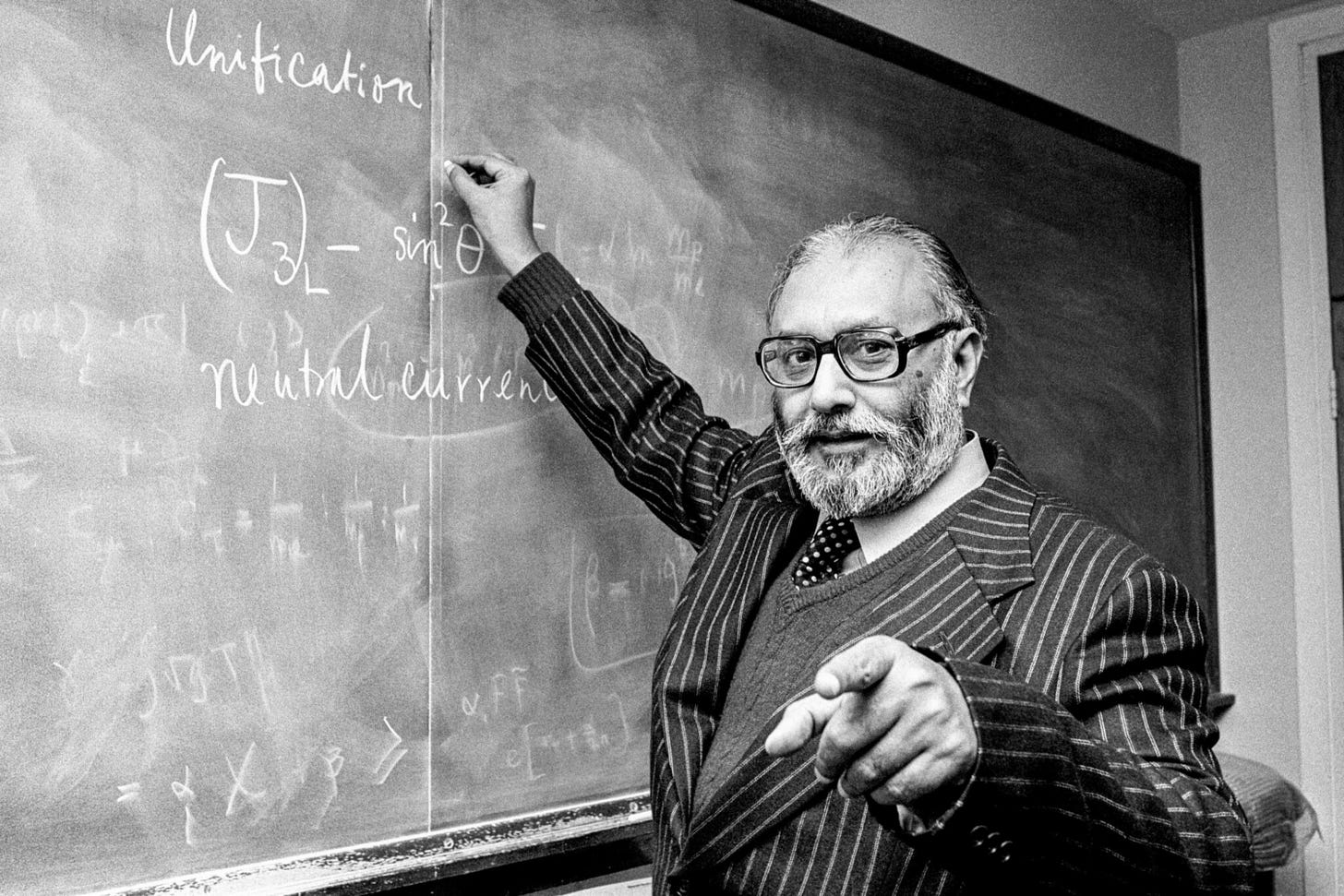
But the Government of Pakistan has wiped even his memory from Pakistan’s history books, as they have wiped the word “Muslim” wiped off Salam’s tombstone.
Likewise, Sir Muhammad Zafrulla Khan was a Founding Father of Pakistan who worked closely with Jinnah. Khan was one of the most prolific lawyers and scholars of the 20th century, and one of the most ardent champions for the Palestinian cause for liberation and self-determination—yet in contemporary Pakistan he is all but forgotten on account of his devout faith as an Ahmadi Muslim.
In a recent report to the United Nations, the Ahmadiyya Muslim Lawyers Association USA testified to the horrifying escalation that the Government of Pakistan is now engaging in by prosecuting Ahmadi Muslims on terrorism charges for the ‘crime’ of possessing and selling an Ahmadi printed copy of the Qur’an:
State authorities are also arresting and prosecuting Ahmadi Muslims as “terrorists” under the provisions of Pakistan’s primary anti-terrorism legislation, the Anti-Terrorism Act of 1997, for possessing allegedly banned religious publications, arrested and sentenced to five years in prison on blasphemy and terrorism charges for selling copies of the Qur’an and other publications of the community.
How ironic that while claiming to stand as the vanguard of Islam, Pakistan criminalizes possession of the Qur’an itself in ways the West’s most ardent Islamophobes could only dream of. The result of this targeted persecution is that despite representing less than 1% of Pakistan’s population, “Ahmadi Muslims account for almost 40% of all arrests under Pakistan’s anti-blasphemy laws. Over 4,000 Ahmadi Muslims have faced criminal charges for simply practicing their Islamic faith.”
Perhaps most painful of all during this Eid of Sacrifice, is that while this Eid celebrates and marks the end of the Hajj Pilgrimage—a pilgrimage incumbent upon all able bodied Muslims—Pakistan bans Ahmadi Muslims from completing the Hajj. And still not content with a Hajj ban, extremists in Pakistan have additionally banned Ahmadi Muslims from celebrating Eid itself.
Which brings me back to the vision Jinnah had for Pakistan. Indeed, Pakistan’s first Constitution reflected the ideals of religious freedom and minority rights to date denied to Ahmadi Muslims. For example, the Preamble to Pakistan’s Constitution declares that Pakistan shall be a state:
Wherein adequate provision should be made for the minorities freely to profess and practise [sic] their religions and develop their culture. . .Wherein should be guaranteed fundamental rights including equality of status and of opportunity, equality before law, and freedom of thought, expression, belief, faith, worship and association, and social, economic, and political justice…; Wherein adequate provision shall be made to safeguard the legitimate interests of minorities…;
Accordingly, in an address to the United States less than a year after Pakistan’s creation, Jinnah declared and reaffirmed Pakistan’s commitment to freedom and pluralism to its new ally:
In any case Pakistan is not going to be a theocratic State to be ruled by priests with a divine mission. We have many non-Muslims — Hindus, Christians, and Parsis — but they are all Pakistanis. They will enjoy the same rights and privileges as any other citizens and will play their rightful part in the affairs of Pakistan.
This Eid, as 1.6 billion Muslims celebrate, Ahmadi Muslims in Pakistan will continue to seek that founding promise that has been denied to them for now half a century. While too many in Pakistani leadership and the religious cleric class may not believe in Jinnah’s founding promise—Ahmadi Muslims do and always will, and will forever insist on playing our rightful part in the affairs of Pakistan.




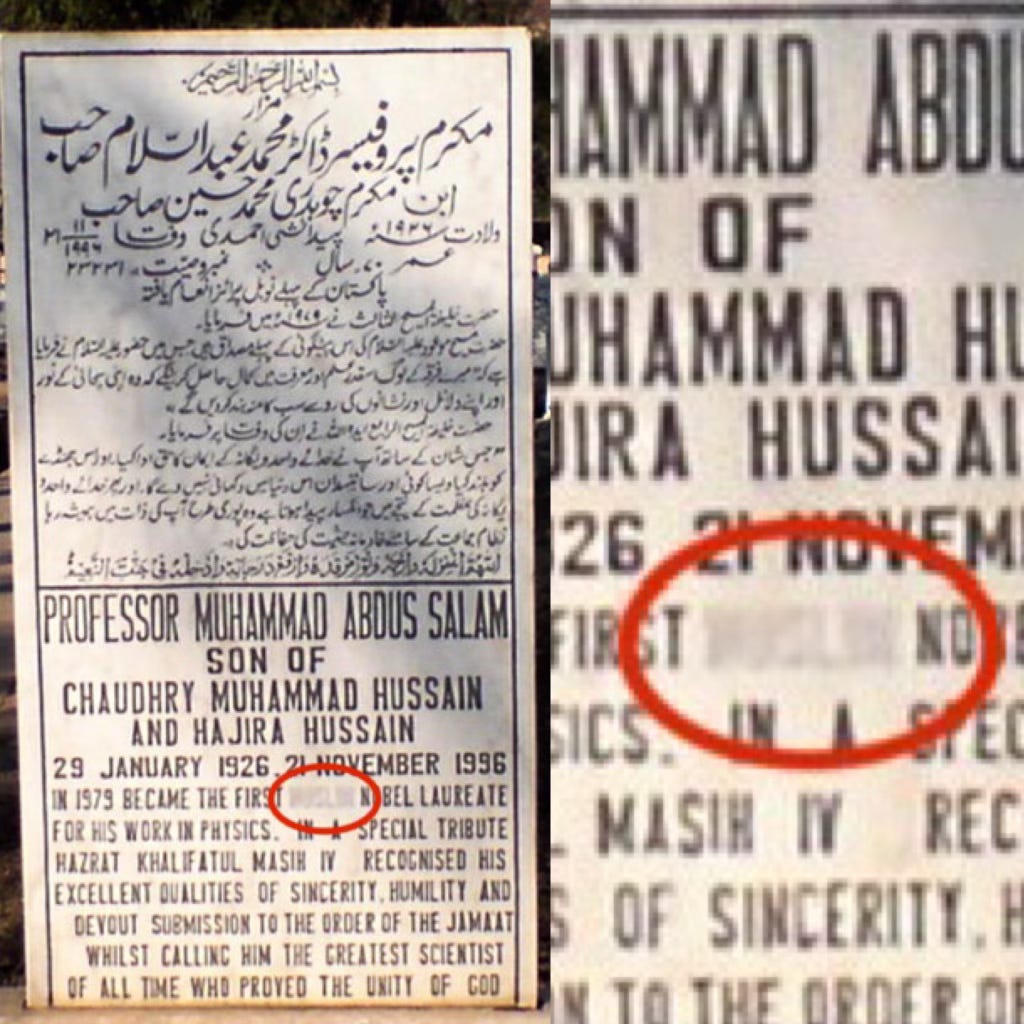
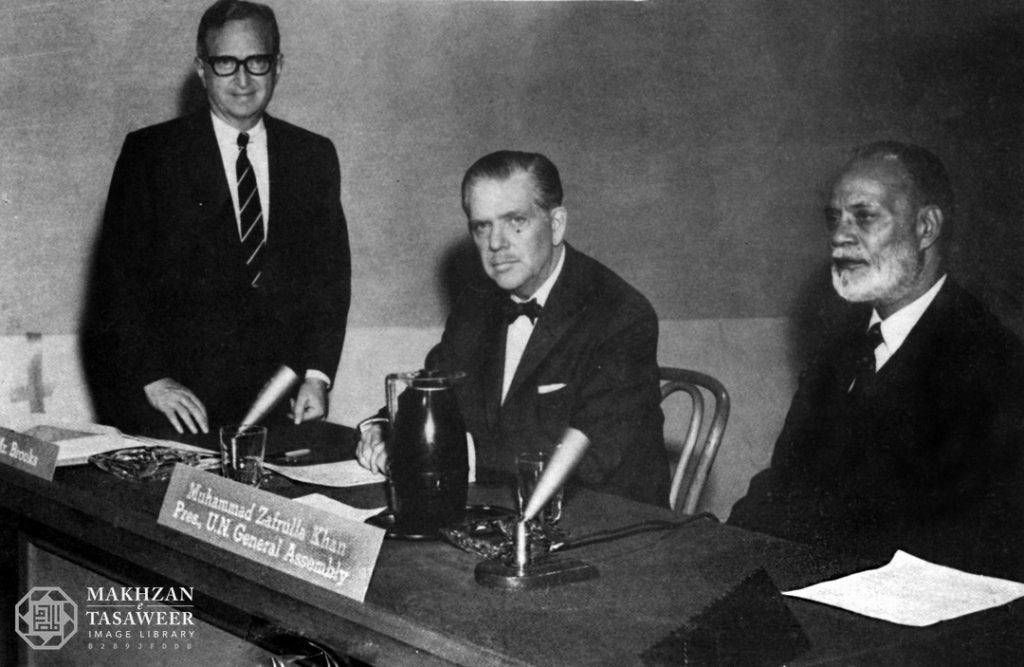
Thank you for informing and teaching us about this devastating blow to fundamental freedom. As a trial lawyer, I know the number one rule is to never do anything inconsistent with the theory of your case. WOW to see the world go awry and become the opposite of that intended by principled founders whose protection should never wane. I’m really saddened and alerted by your bringing together of these startling facts. Thank you for staying consistent with truth telling for justice sought.
Thank you for this important information. Not a surprise that western media is a ridiculous bubble and keeps us woefully ignorant of the rest of the world!